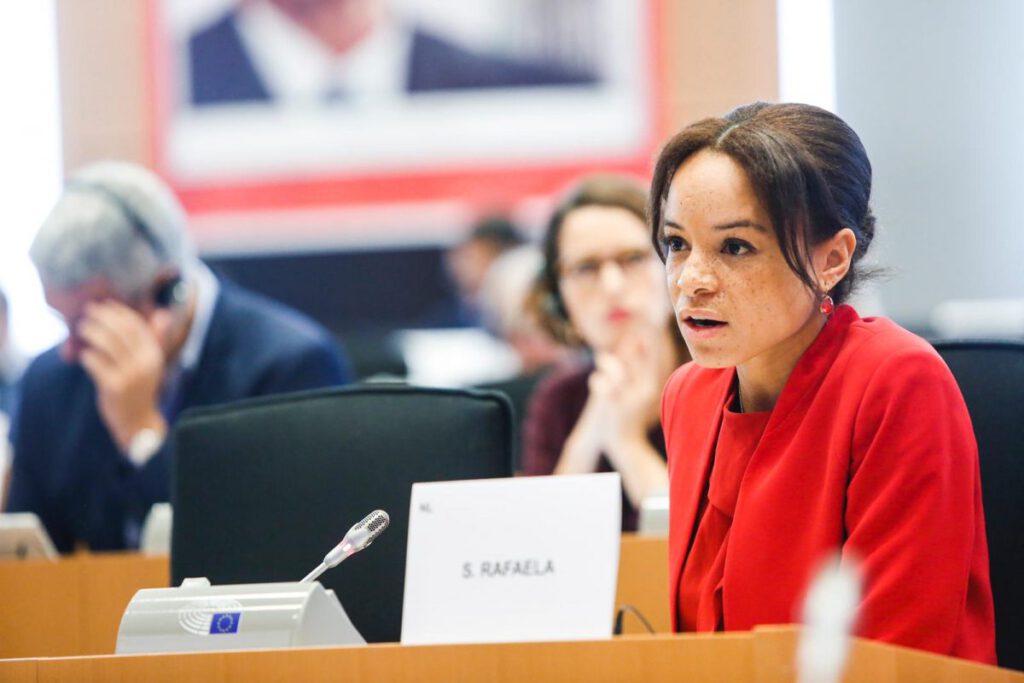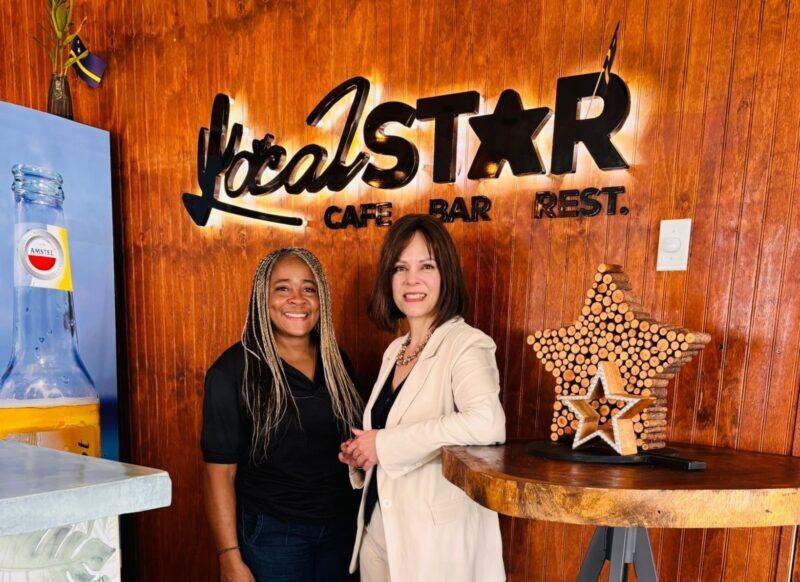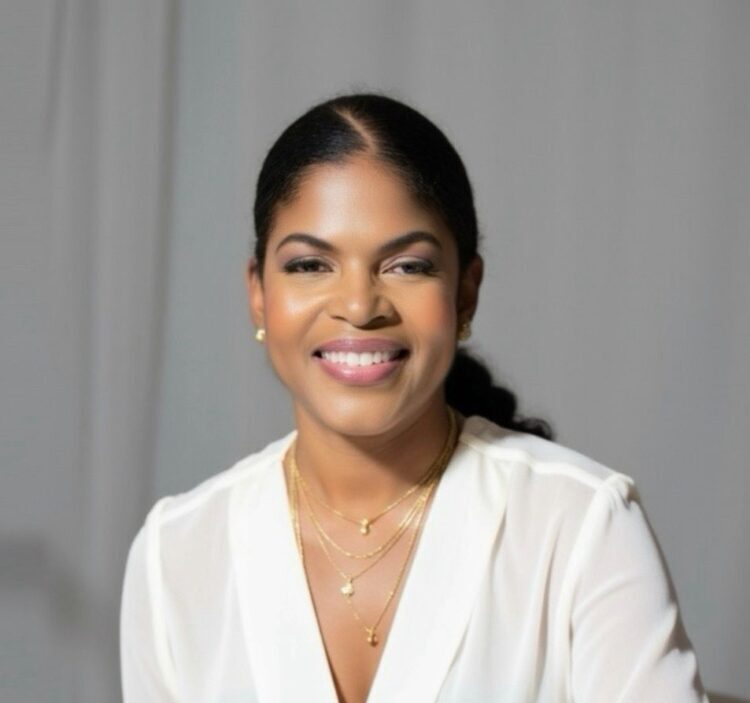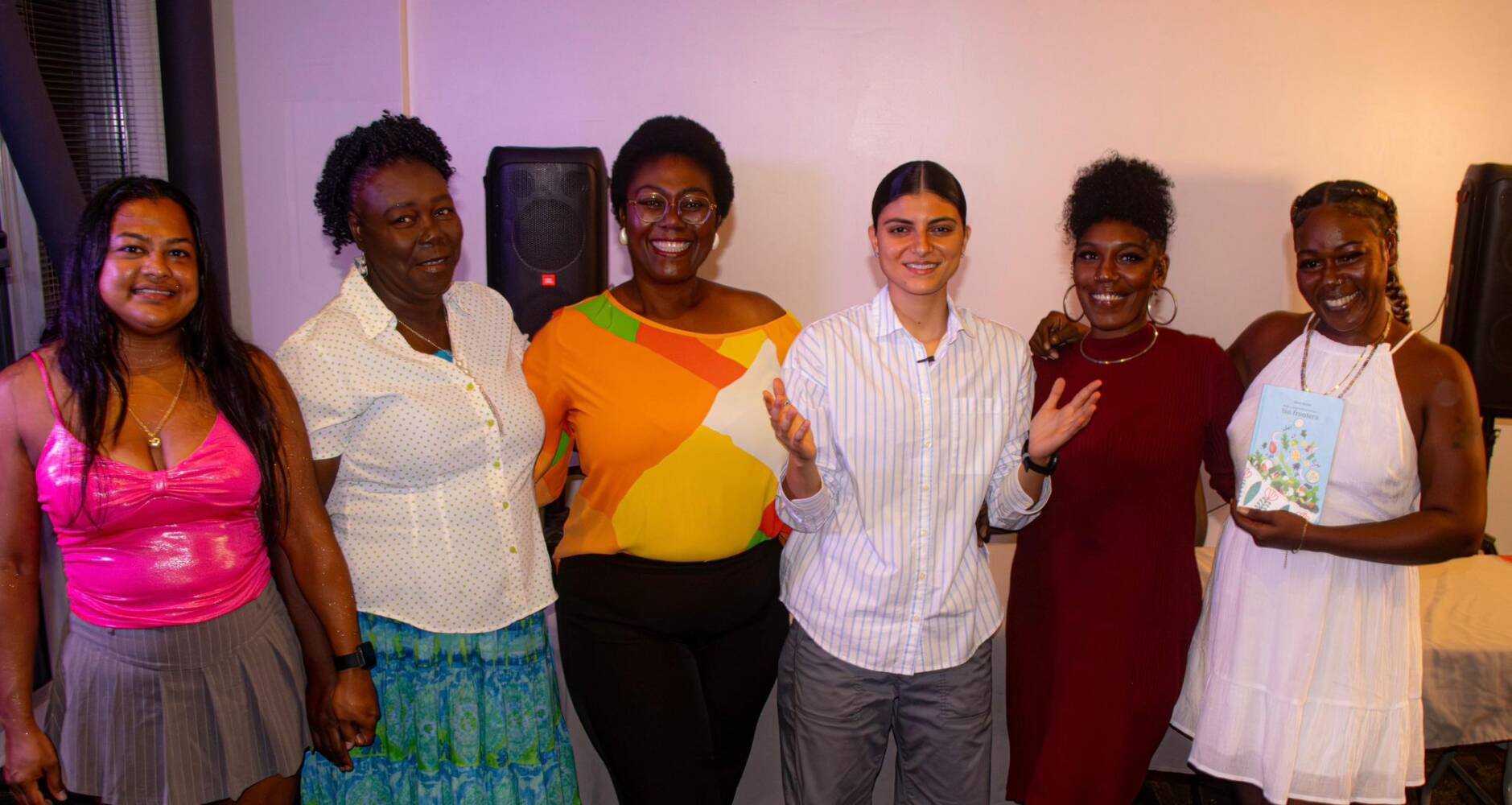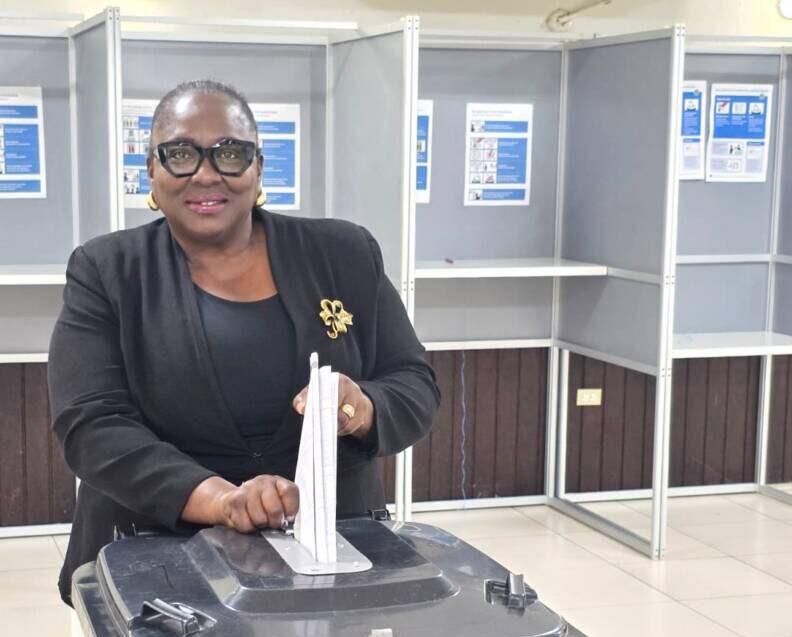AMSTERDAM/BRUSSELS – Samira Rafaela (D66) was voted into the European Parliament with preferential votes after an extensive campaign on the islands. What has she achieved so far?
The Caribbean islands which are part of the Kingdom are seen as ‘overseas territories’. They’re thousands of kilometers removed from Brussels. Are they often forgotten?
“The attention for the islands just isn’t there sometimes”, says Samira Rafaela. “The first thing we do whenever we receive a proposed treaty or law is to use Ctrl F to search the document for any mention of the islands. We’re talking about access to EU funds or the mention of overseas territories in laws or treaties. We’ve noticed that there are a lot of blind spots within the European Parliament.”
Have Dutch MEP’s been sleeping at the wheel?
“I’m wide awake in any case, haha! My point of view is: we are one Kingdom. So whichever table we’re seated at, that’s the perspective we use. That’s why, together with my French colleague, I started a friend group within the European Parliament especially for the Caribbean islands.”
Anthony Begina, the minister plenipotentiary for Curaçao in the Hague had mentioned in the past that: Curaçao misses out on millions from Brussels. What have you noticed in Brussels?
“That could definitely be the case but I’m not sure. Great projects have been completed on the islands with EU funding. It is extremely important that those request are done properly and that the right experts are available to do this. If you don’t do that, you’ll miss out on opportunities. This could mean millions of euros.”
The islands also don’t have the required expertise when it comes to possibilities within the EU framework, according to you.
“Yes. As an island, you have to organize this properly. I’m constantly mentioning this in my conversation on the islands, in the Netherlands, and in the European Parliament. How can we share this expertise with the islands?”
“At the same time, I’ve noticed that there’s been a lot of attention on the islands recently on the relationship with the European Union. A special EU-desk has been set up on Curaçao. Aruba has its own representative for the EU, Eddy Paris. And Saba is extremely successful in requesting EU funds.”
Just a few weeks ago you visited Curaçao, Saba, and Sint Maarten together with MP and D66-leader Rob Jetten. What do people notice after you’re done with such a trip?
“The message we wished to convey was that we see ourselves as part of a new generation which wants things to change for the better within the Kingdom, with better cooperation and with a different tone of voice and attitude. With respect for the different statuses, but through solidarity we will help each other within the Kingdom.”
“What we also have to realize is that our countries within the Kingdom can be seriously affected by climate change. I applaud the European Green Deal, but seventy five percent of the planet is covered by Blue. You really notice this on the islands. I would really like us to develop a Blue Deal for these areas. And as an extension of that for all the areas of the blue world.”
You recently visited Sint Maarten for the first time, which was ravaged by hurricane Irma two years ago. What did you notice?
“There are stories which affected me deeply. When people are in dire need and they still can’t start over because the rebuilding effort hasn’t been optimal, we have to help. This is also about fundamental human rights. I believe that we have to start moving towards a development fund. My team and I will be looking into how and what is available there.”
Speaking of fundamental rights. Look at the situation in the prisons of the autonomous countries. How could you help with that?
“This is exactly why I believe we should have a different mentality within the Kingdom. Look at the Venezuela issue and other human rights issues. All these situations are close to escalating. The message is that we are one.”
“I have to be realistic though about my sphere of influence. Where I can introduce amendments to make access to EU resources easier, I will do that. You don’t want create a dilemma for people: will I invest in human rights within for example the prison, or will I invest in education?”
You paid a lot of attention to the youth on your visit to the islands. What will you be doing for them in Brussels?
“What we want is for them to make more use of what the European Union has to offer. Like the international student scholarships offered through the Erasmus+ program. Few Caribbean students participate in the program, this number has to go up.”
“Our starting point is: no more discussion about whether we’re going to help each other, we will help each other. This is the message we want to send and as such we’ll start building a bond with each other and creating trust.”




